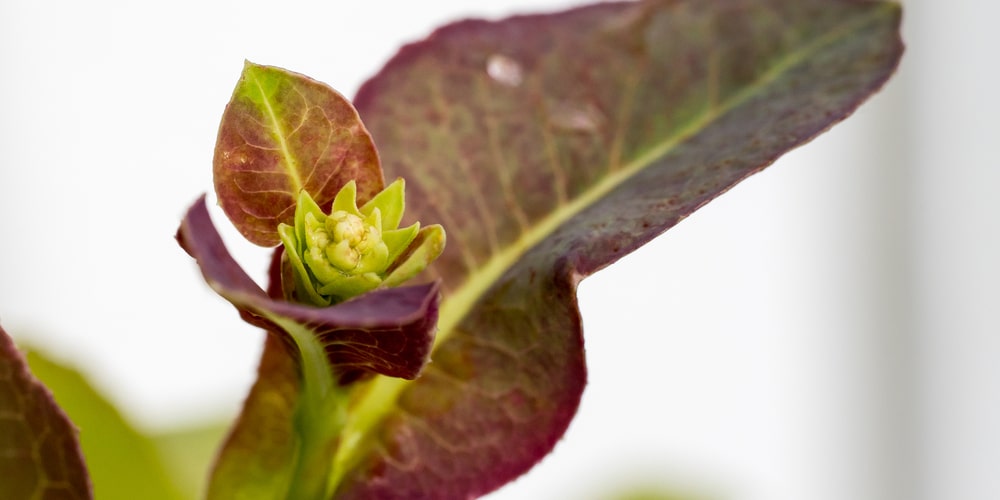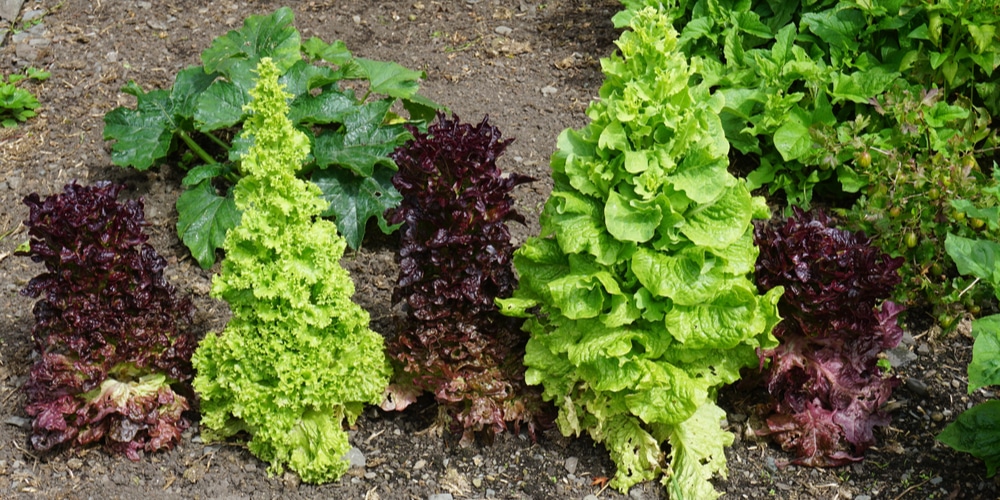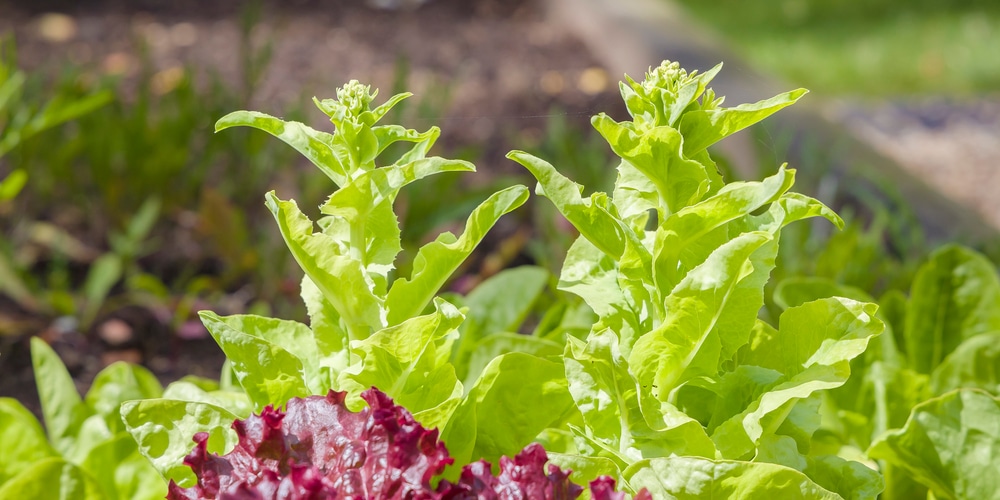Lettuce plants tend to keep a low profile, with leaves growing out in a typical pattern you see on grocery shelves. You might be surprised to find your lettuce plant growing tall, but is there a reason why this happens?
To answer the question, ‘why is my lettuce growing tall?’ it’s likely that the plant’s environment has grown warmer and it’s now ‘bolting’, which means it’s now producing flower stalks and approaching its end-of-life cycle. There are several reasons for this, all of which we’ll cover below.
What is Bolting in Lettuce Plants?

The term ‘bolting’ is used when a lettuce plant suddenly starts growing uncharacteristically tall and in a vertical manner. You’ll see stalks which terminate in a flower, which isn’t bad in itself because it’s a natural process. However, when you harvest the leaves you’ll find them to be very bitter.
‘Bolting’ is a natural phenomenon that occurs when the lettuce decides that it should reproduce. The tall stalks are an indication that the plant is trying to send up flowers, which normally occurs when the temperature rises.
Heat and season are the primary factors of when a lettuce plant bolts. It’s worth noting that lettuce are cold-season crops, and although they love bright light they should be kept in a controlled environment. The same goes for some herbs and vegetables, such as broccoli.
Mature lettuce plants have a higher chance of bolting compared to seedlings, but it can happen to young ones as well. When the weather changes, such as summer and hot days then the lettuce you have might bolt and grow vertically. The same goes for changing conditions, such as alternating cool and warm environments.
Container size can also be a factor- if the roots are too constricted then your lettuce plant will consider bolting as a viable solution. Repot if the roots are poking out the drain hole or if the plant is producing too few leaves to be harvested.
Can You Eat Lettuce That Has Bolted?
In a nutshell, the tall leaves in a lettuce plant are edible and you can eat them. The only concern is the taste- they are bitter and not too palatable.
In terms of texture and nutritional value, tall and short lettuce leaves are more or less the same. It’s up to you if you want to continue harvesting leaves from your tall lettuce plant, or scrapping it and starting altogether.
It’s not recommended, however, to continue eating tall lettuce as it contains sesquiterpene lactones. The bitter taste might be too much for some and they might develop an aversion to lettuce this way.
How to Stop Your Lettuce Plant From Bolting
Bolting lettuce plants is a natural fact of life, but there are ways on how you can prevent this from happening prematurely.
First, you should know that lettuce are cold weather crops and that they enjoy low temperatures. That said, it’s recommended that you keep them away from heat sources, such as direct sunlight and warm locations. Newly-planted seedlings should be protected from the elements with row covers or by bringing them indoors.
As a plant, lettuce likes its soil to be constantly moist. If you miss a watering schedule or two it can trigger the bolting process and signal the lettuce to start producing flowers. You can reduce the chances of bolting in hot weather by staying consistent in the watering department.
Temperature plays a significant role in a bolting lettuce plant. It’s best to keep the environment not too cold nor too hot. Plan ahead and start the seedlings at the right time so you won’t have to contend with extreme weather swings.
Lastly, you should harvest leaves regularly to make the most of your lettuce plant. Once every few days or so works, and the plant will send out new ones to replace them quickly. This way you won’t have second thoughts about planting new lettuce.
Lettuce plant growing tall : Conclusion
It’s worth noting that there are several lettuce varieties that are heat- and bolt-tolerant, which serves as an excellent solution for growers who constantly experience bolting.
Even then, you should observe best practices to try and prevent bolting, such as regular watering and keeping your plants out of direct sunlight.
Related Article: Growing Lettuce in Summer Tips and Tricks

